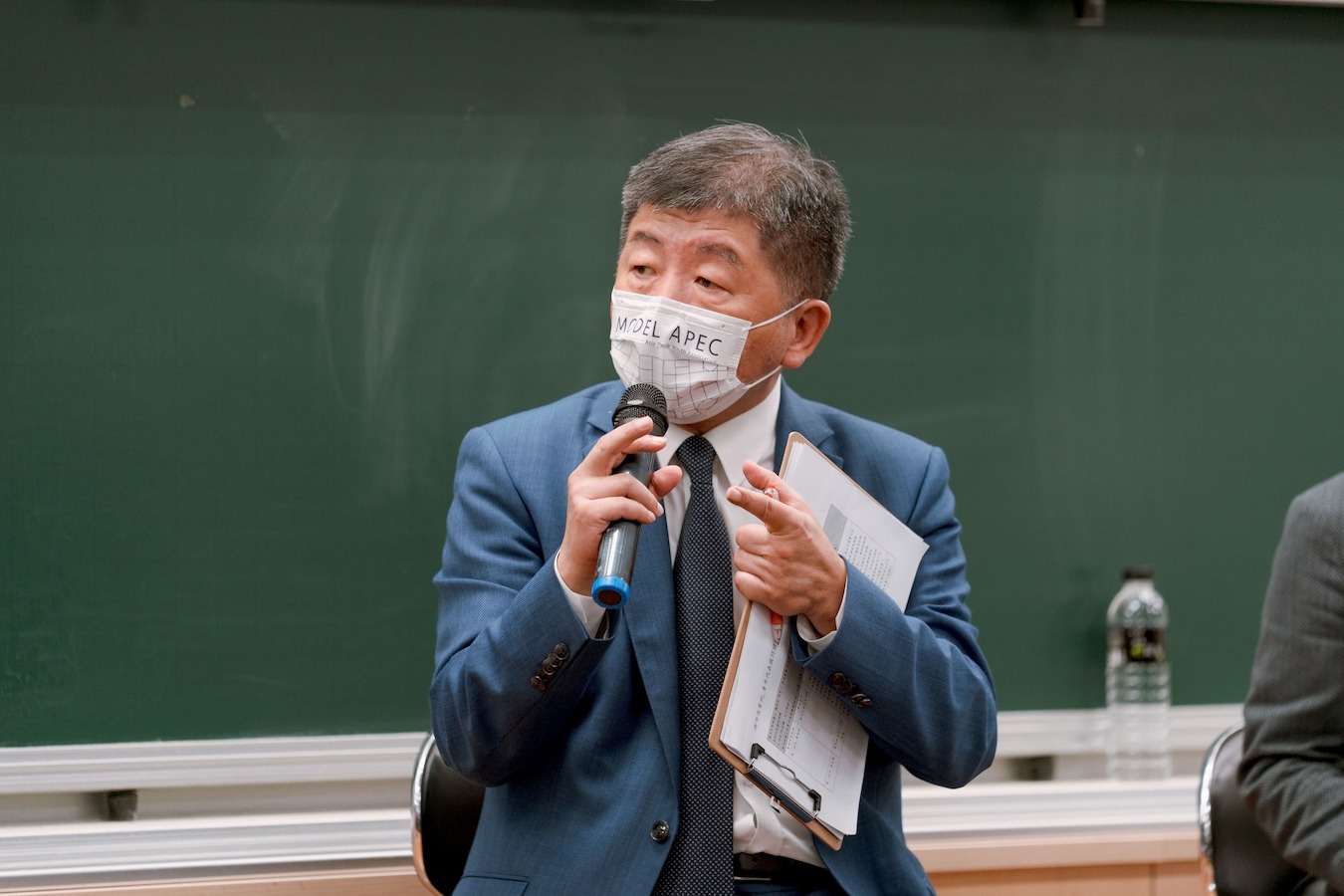by Brian Hioe
語言:
English
Photo Credit: Whispyhistory/WikiCommons/CC BY-SA 4.0
RECENT EFFORTS by the pan-Blue camp to attack the DPP have attempted to frame the Tsai administration as lacking transparency and incompetent. Notably, this may dovetail with Chinese disinformation efforts, as amplified by domestic pan-Blue outlets.
This can be seen in media reports from the China Times claiming that Taiwan paid more than other countries did for COVID-19 vaccines. This took place following reports that Taiwan paid 40.86 billion NT for 53.51 million doses of vaccines. It was alleged that vaccines would have normally cost 33.54 billion NT but that 7 billion NT was skimmed off by the Tsai administration.
Such news reports are probably aiming to attack the DPP’s candidate for Taipei mayor, Chen Shih-chung. Chen was previously the Minister of Health and Welfare and headed the Central Epidemic Command Center that coordinated Taiwan’s fight against COVID-19 in his capacity as such.
 DPP Taipei mayoral candidate Chen Shih-chung. Photo credit: Chen Shih-chung/Facebook
DPP Taipei mayoral candidate Chen Shih-chung. Photo credit: Chen Shih-chung/Facebook
In particular, reports by Want Want-owned outlets are of suspicion, with the Financial Times having reported in the past that the China Times seeks approval from China’s Taiwan Affairs Office (TAO) before running stories and that it allows the TAO to have a say in its editorial direction in 2019. In the same year, the Apple Daily reported that the Want Want Group received over 477 million Chinese yuan—just over 2 billion NTD—from the Chinese government between 2017 and 2018.
Attacks by the pan-Blue camp on the Tsai administration over vaccines have been a recurring theme of the COVID-19 pandemic. First, it was alleged that the Tsai administration had not taken action to purchase vaccines before Taiwan was hit with its first major COVID-19 outbreak. After Taiwan began to receive AstraZeneca vaccines from its purchase orders, it was claimed that AstraZeneca vaccines were particularly dangerous, and that the Tsai administration had only been able to purchase vaccines dangerous to the safety of Taiwanese, and called for accepting vaccines from China. Subsequently, pan-Blue political actors such as FoxConn founder Terry Gou, a number of local KMT elected officials, and Taipei mayor Ko Wen-je began to try and undercut the Tsai administration by asserting that they would seek to circumvent the central government to negotiate vaccine purchases on their own.
Alleging that the Tsai administration had done nothing to purchase vaccines drew on the fact that many Taiwanese were not aware that at that point in time, it was only primarily large first-world countries such as the US that had received vaccines. Likewise, vaccine manufacturers normally only negotiate with national governments, rather than private enterprises, religious organizations, local governments, or individuals. However, many Taiwanese were not aware of that fact either. Eventually, the central government stepped in to lend its political legitimacy to efforts by Gou and private entrepreneurs to purchase vaccines. Having once held power in Taiwan, the KMT was no doubt aware that this was the established practice, but sought to frame the issue for its own benefit.
It is interesting to note that the KMT has often sought to depict the Tsai administration as corrupt, in light of the longstanding reputation of the KMT for corruption during the authoritarian period, and even at a time in which a number of KMT politicians are under investigation for graft. The KMT is often attempting to put the shoe on the other foot when it comes to such allegations, trying to depict the DPP along the lines of its own past behavior.
It is, in fact, that vaccine deals between pharmaceutical companies and national governments are highly lacking in transparency regarding the number of doses ordered, how much they cause, and other information. Yet this is not a particular fault of the Tsai administration, per se, and rather reflects the enormous power that pharmaceutical companies have internationally.
 National Communications Commission. Photo credit: Solomon203/WikiCommons/CC BY-SA 3.0
National Communications Commission. Photo credit: Solomon203/WikiCommons/CC BY-SA 3.0
One notes that the China Times has recently circulated allegations that National Security Bureau Chen Ming-tong took a trip to Thailand at public expense. This is either to suggest that Chen was vacationing at the taxpayers’ expense or to suggest that Chinese intelligence has such wide reach as to obtain photos of what should have been a covert trip by Chen.
In the meantime, the KMT has also sought to attack the Tsai administration over the rearrangement of channel order. With media outlet Mirror Media seeking to enter the television market, the KMT has taken a stance against pan-Blue TVBS being moved to a television block with lower viewership, moving from a position in the 50s to the 100s, seizing upon claims by a Mirror Media executive during a meeting that he was backed by Premier Su Tseng-chang and President Tsai Ing-wen.
But despite being a former authoritarian party that only allowed three networks during martial law, so as to better regulate them, the KMT has generally sought to frame the DPP as seeking to crack down on freedoms of speech with any effort to regulate the media. This has especially been the case after Want Want-owned CtiTV did not have its broadcast license renewed by the National Communication Commission after numerous violations. As such, one expects the KMT to try and defend the China Times even if it has begun to lean into efforts to circulate Chinese disinformation before elections.

